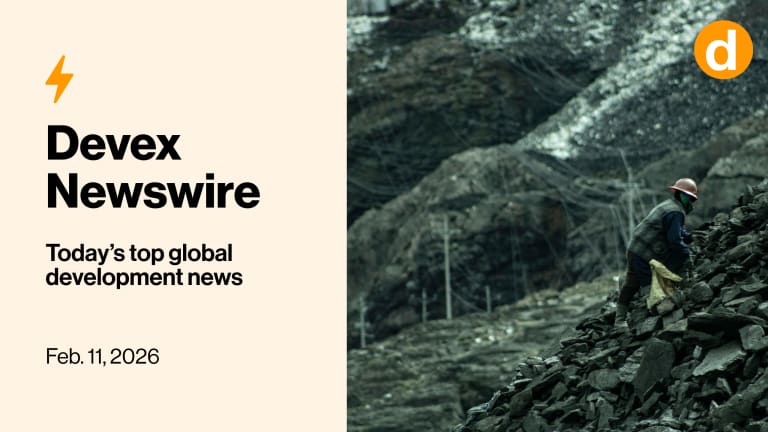
Good governance is key to development. But should donors cut foreign aid to countries with corrupt leaders or weak institutions?
It’s a dilemma the global aid community continues to grapple with — and one that is increasingly crucial to aid effectiveness as donors shift resources toward fragile states while, at the same time, funneling more money through partner country institutions.
We asked Ayo Obe, a prominent Nigerian lawyer and human rights activist who now chairs the board of trustees of the Goree Institute and also serves as a trustee of the International Crisis Group, for her take on this complex challenge.
Should donors cut aid to countries that fail to meet certain governance and human rights benchmarks?
Well, the trouble is, what is the effect of the aid that they are cutting? What aid are they giving? Often, the citizens who are suffering most in terms of human rights abuse and so on are the very ones who need the help most and they haven’t even got to the stage where they can challenge or impact their own governments because of their conditions. So, when you cut aid, you make their situation actually worse.
Obviously, I would say you should support democratic institutions, you should support people to make their governments accountable. You can inject your aid and your assistance where there is at least a semblance of democracy. Often, you have governments that have a semblance of democracy, but they are not really doing much to actualize it; but you can bring them more towards actualizing real democracy.
So, there are risks of linking aid to good governance and human rights?
Yes, there are. This is why I have said that you will honestly, inevitably end up having a double standard because for some governments it will work. For other governments, it would be completely counter-effective because governments which are really bad, they have no problems if their citizens are suffering. It doesn’t matter to them, they are not bothered. So, when you say, “Well, I am going to make your citizens suffering even more,” they say: “So what? I don’t care.”
You have a problem with that kind of government, but some other governments would feel it … and they will respond to pressure. Unfortunately, you cannot have a one-side type of policy. You have to assess each country – the government, the situation – on its own terms.
Is the emergence of China, India and Brazil and other donors changing the pursuit of democracy and human rights?
Not really. In Nigeria, for example, the Chinese may have come in to build railway system; they may come in to build some power stations. The responsibility for what they do or what they don’t do is a responsibility of the government we have elected, and it’s our business to elect the government and it’s a business of the government to have its own standards.
Of course we know that China might do business with you whether you are a dictatorship or whether you are a democracy – that’s not really a problem for them. As you noticed, 30,000 Chinese left Libya when general Gadhafi regime was falling; they’re back. No matter to them, they had to do their job. So, it is not actually their responsibility.
The ultimate responsibility … does not lie with the people giving the money, it lies with the countries themselves.
Read our previous 3 Questions for John Patrick Ngoyi.








